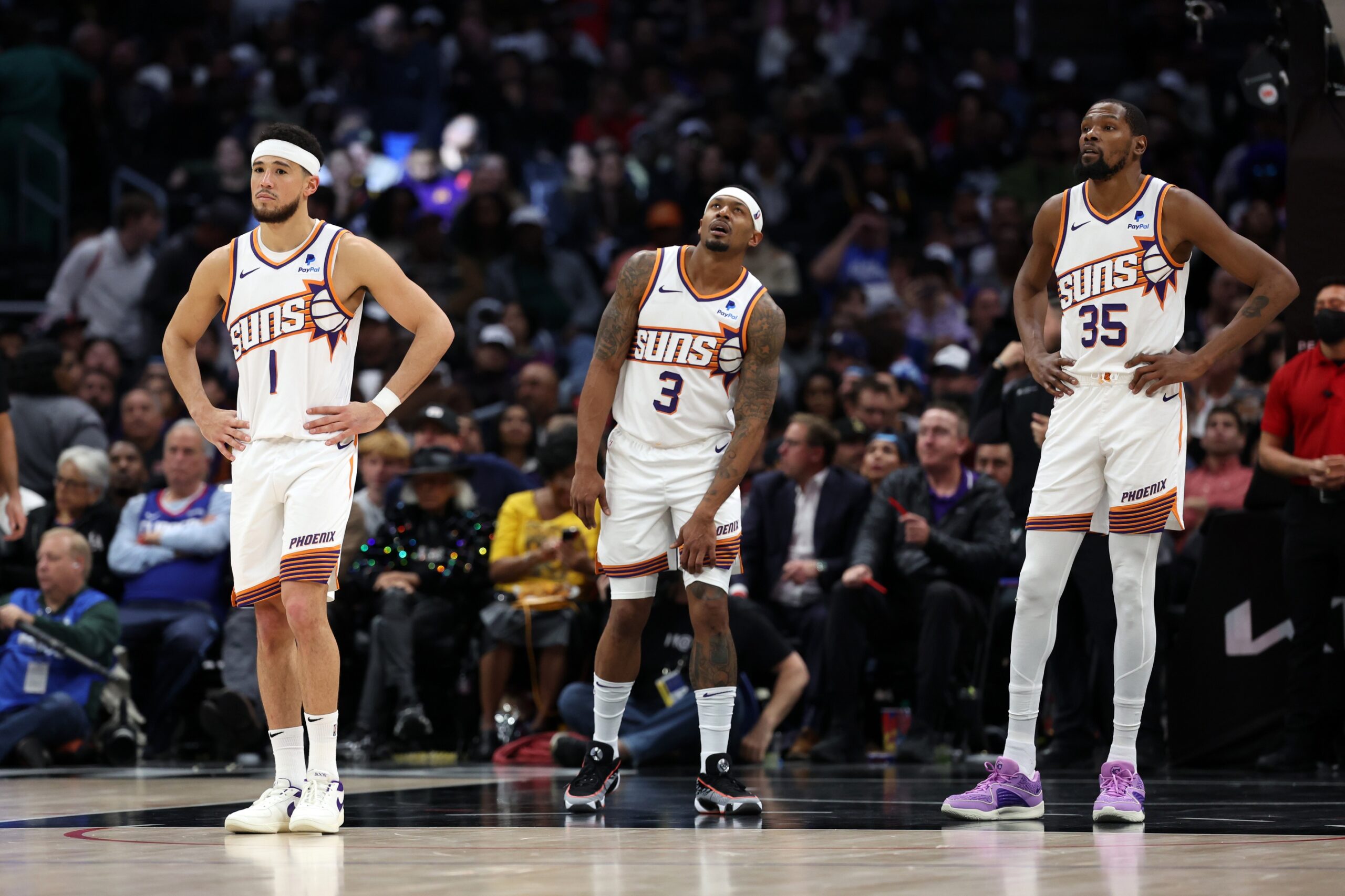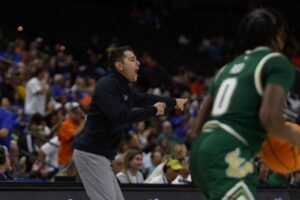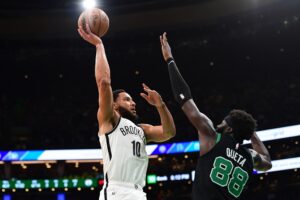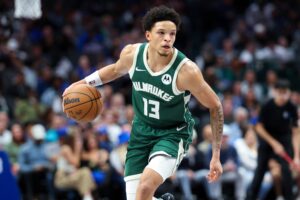The Phoenix Suns entered this season with title aspirations, but unfortunately, they were swept in the first round by the Minnesota Timberwolves. While it’s obviously a disappointing season, it bears startling similarities to that of the Miami Heat team in 2010-11. How similar are their big three philosophies?
Phoenix Suns 2023-24 and Miami 2010-11: Similar Big Threes?
Feasting in the Mid-Range
Both teams brought together players with overlapping skill sets. In this year’s regular season, only six teams had three players make at least 60 mid-range field goals: the Brooklyn Nets, Dallas Mavericks, Denver Nuggets, Golden State Warriors, Milwaukee Bucks, and Phoenix Suns. Kevin Durant and Devin Booker finished first (251) and third (184), respectively, in the NBA on this list. For context, no other team had two players in the top 15 in mid-range field goal makes.
When the Miami Heat assembled the trio of Chris Bosh, Dwyane Wade, and LeBron James in the 2010-11 season, they ranked between 13th and 16th in the league in mid-range shots made the prior year. They made 593 mid-range shots that year. When they banded together to go on their Avengers arc, they made 597 mid-range shots in the 2010-11 season.
Top-heavy Rosters
Both teams were dedicated to the concept of a star trio, to the extent that they were prepared to structure their entire financial framework to support it.
The Suns started the 2023-24 season by paying their big three around $130 million of their 136 million dollar cap space. They had three players earning between mid-level contracts from an off-season trade including Grayson Allen, and Nassir Little. Jusuf Nurkić was the only member outside of the big three making more than 10 million dollars per year. While the rest of the roster was comprised of minimum-contract players they signed. At the trade deadline, they aggregated a couple of minimum contracts to get a fourth mid-level contract (Royce O’Neale). They finished the season with salaries just north of $190 million, well past the first and second tax apron.
The 2010-11 Heat devoted $43 million of their $58 million cap to their big three. That meant they could only afford to pay three players with salaries above the minimum: Joel Anthony, Mike Miller, and Udonis Haslem. That put their salary commitments at roughly $67 million, just a tad short of the luxury tax line of $70.3 million for that season.
Price to Pay
Both teams had to fork over a haul of draft picks and valuable players to assemble their big three.
The Suns traded Cam Johnson and Mikal Bridges, in addition to four first-round picks and a first-round pick swap, to the Brooklyn Nets to acquire Kevin Durant in early 2023. They gave up four first-round swaps to the Washington Wizards for Bradley Beal this past summer.
The Heat gave up two first-round picks apiece for James and Bosh in sign-and-trades. They traded all their players not named Joel Anthony to create the needed cap space to add them.
Going Against the Status Quo
Seasoned NBA insider Bill Simmons had concerns about the Suns because they didn’t have a traditional point guard. The Suns never tried to resolve that issue. They instead chose to delegate all of the playmaking duties to their big three. The Miami Heat had a similar big three, lacking a traditional point guard.
The Last Word
Edmund Burke once said, ‘Those who do not remember the past are condemned to repeat it.” Given the manner of their first-round exit, the Suns would have been pleased to repeat the 2010-11 Miami Heat’s ‘disappointing’ NBA finals loss.
Unfortunately for the Suns, the Miami Heat existed in a different era. An era that was less punitive on super team construction and allowed them to add depth over the subsequent years. The addition of Shane Battier, Ray Allen, and Norris Cole would help them win two championships. Additionally, Miami’s core big three was much younger and their initial success was far greater.
The Suns won’t be able to do that with the restrictive punishments put in place by the new Collective Bargaining Agreement. It will be interesting to see the moves the Suns make in the coming months to put themselves in a better position to succeed.






